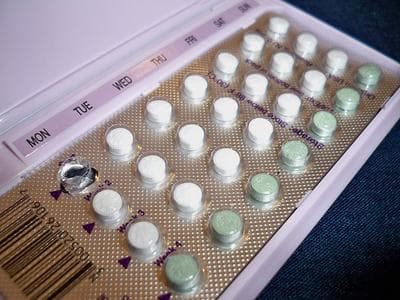Advertisement
The History Of Birth Control In The U.S.
Resume
Reproductive rights advocates are urging the FDA to make birth control pills available without a prescription. Almost 70 percent of women say access to birth control is a matter of health care, according to a Bloomberg poll.
On the other end of the political spectrum, there was the Blunt Amendment which would have allowed any employer - not just religion-based organizations - to opt out of the health reform requirement that their plan provide free contraceptives for employees.
Rush Limbaugh called Georgetown law student Sandra Fluke a slut after she spoke in favor of birth control coverage for medical purposes. And candidate Rick Santorum has said in the past that if he makes it to the White House he'll be addressing "the dangers of contraceptives."
Today's hand-wringing about birth control is nothing new.
Did you know, for instance, that the birth control pill was not allowed in Massachusetts as recently as 1970? At one point, the Pittsburgh branch of the NAACP charged that Planned Parenthood clinics were in effect using the pill as an instrument of racial genocide.
Andrea Tone, professor of history & Canada Research Chair in the social history of medicine at McGill University in Montreal, Canada, says that when the pill was first put on the market, there was a unique debate.
"People weren't sure if women would buy it, if doctors would prescribe it and then what was absolutely fascinating is it practically flew off the shelves," she told Here & Now's Robin Young.
Guest:
- Andrea Tone, professor of history & Canada Research Chair in the social history of medicine at McGill University in Montreal, Canada, and author of "Devices and Desires: A History of Contraceptives in America."
This segment aired on April 3, 2012.